5 Foods to Avoid on Sunday If You Want to Feel Less Anxious on Monday

Welcome to our series #SaveOurSundays, where we tackle the Sunday Scaries and anxieties about the workweek head on. Check back every week to learn how to take back your weekend and start your Monday on a better note.

In theory, indulging in some comfort food might seem like a great way to counteract the Sunday Scaries. (Brunch, anyone?) But if you're prone to stress as the weekend winds down, the truth is that nutrition is a highly effective tool to ensure that you're feeling relaxed, clear-headed, and productive come Monday morning.
"Food plays a huge role in how we experience emotion and can impact symptoms such as fatigue, focus, motivation, anxiety, depression, and more," says Audry Van Houweling, a holistic psychiatrist nurse practitioner. "Our brain demands more energy than any other organ in the body, and so not surprisingly, the food we eat plays a huge role on our mental stamina and productivity."
Certain foods can also throw our hormone levels off-kilter, which can exacerbate stress and mood swings. That means if you're gearing up for a crazy week at work, taking a closer look at the foods you're eating on Sunday isn't a bad idea. (At the very least, Monday might feel slightly less painful.)
Keep reading to learn which six foods can make anxiety worse—and three others that might reverse it altogether.
Avoid: Processed and Fast Food
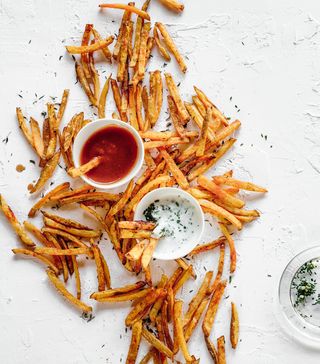
These foods tend to contain a lot of hidden sugar and unhealthy fats, which can spike your cortisol levels and leave you feeling sluggish for hours afterward. "If possible, I would avoid heavily processed foods high in sugar and fast food–type meals in excess during the weekend, as they are not doing your digestive system any favors in the long run," says Maggie Michalczyk, Chicago-based registered dietitian.
Avoid: Sugar

While we're all for indulging in a Sunday-morning doughnut, be wary that this spike of sugar can kick off a chain reaction of cravings and fatigue. "One of the biggest things that will contribute to poor brain function and a reduction in productivity is unstable blood sugar from eating high-sugar and -carb foods," says Brooke Scheller, a clinical nutritionist. "When we eat these foods, we have a sharp rise in blood sugar that quickly drops off. When we come down from the sugar high, we feel 'hangry' and crave more carbs and sweets to bring us back up."
Consider getting your sweet fix from a small bowl of fruit or piece of dark chocolate. And if you really want the doughnut, try balancing it out with healthy fats and lean protein, which can at least help assuage any cravings later in the day.
Avoid: Carb-Heavy Foods
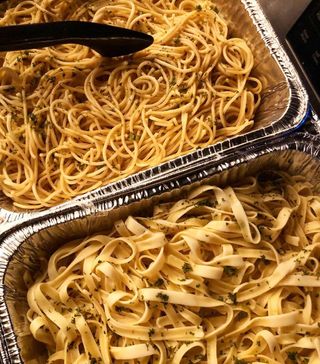
This is just another type of sugar for our body to digest, so you can expect that same yo-yo effect with your blood sugar. Research also makes a direct link between high-glycemic diets and the progression of mental health conditions like anxiety and depression.
"Blood sugar imbalances can play a huge role on brain function," iterates Scheller. "Oftentimes these unstable blood sugars can lead to symptoms of anxiety and even 'hanger' (yes, being hangry is an actual thing). Over the long-term, what we eat can play an even bigger role in anxiety rooted in specific nutritional deficiencies and even can tie back to the health of our gut."
Avoid: Alcohol

Hangover aside, alcohol's high-sugar content carries its own host of symptoms. Scientists have also found that alcohol tends to exacerbate anxiety. "Alcohol can lower serotonin levels in the brain, which can lead to feelings of increased depression and anxiety," explains Van Houweling.
Giving up drinking altogether is a big decision, but even just limiting yourself to a drink or two can be helpful. Better yet, skip mixed cocktails and stick with clear liquor or a glass of organic wine.
Avoid: Caffeine

Or limit it, at the very least—especially if you're already prone to the Sunday Scaries. "Caffeine can trigger a stress reaction by increasing levels of adrenaline and cortisol," says Van Houweling. "A morning coffee is fine, but when you are going back for more throughout the day, it can cause more harm than good."

Fermented Foods
If your stress levels are on the rise, enjoying probiotic-rich foods like kimchi, yogurt, and kombucha can serve as a quick remedy. "Studies have shown that when people take probiotics, their perception of stress, levels of anxiety, and mental outlook are better compared to people who don't take probiotics," says Michalczyk. If you're not a fan of fermented foods, a good probiotic can do the trick.
Nutrient-Rich Fruits and Vegetables
In order to keep your hormones balanced, your strategy should be to consume as many vitamins and antioxidants as possible. "Serotonin, the neurotransmitter known for that good-mood feeling among other things, is also produced in the GI tract," says Michalczyk. "Fuel your body with nutritious foods, and your digestive system has what it needs to make enough serotonin and strengthen your immune system, keeping you healthier and happier."
Healthy Fats
The omega acids found in foods like fish, walnuts, and flaxseed oils are crucial for keeping your brain in top form, triggering an anti-inflammatory response and staving off symptoms of anxiety and depression. Avocado toast at brunch? Permission granted.
And above all else, remember that while it's helpful to be conscious of your dietary choices, overanalyzing it can be counterproductive to your end goal. "Aim to eat in a way that makes you feel healthy and strong," says Van Houweling. "Be mindful, splurge once in a while, and listen to what your body is telling you."
Disclaimer
This article is provided for informational purposes only and is not intended to be used in the place of advice of your physician or other medical professionals. You should always consult with your doctor or healthcare provider first with any health-related questions.
-
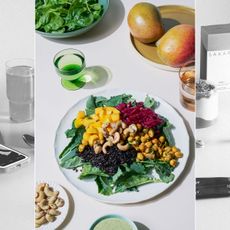 I Only Ate Sakara Life Meals for 30 Days—Here Are 7 Things That Happened
I Only Ate Sakara Life Meals for 30 Days—Here Are 7 Things That HappenedThe brand's 30-Day Fall Reset is finally here.
By Erin Jahns
-
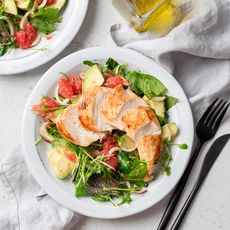 The 6 Warning Signs You're Not Getting Enough Protein
The 6 Warning Signs You're Not Getting Enough ProteinAnd what to eat to up your intake.
By Sarah Yang
-
 Everything This Professional Ballet Dancer Eats to Fuel Her For Performances
Everything This Professional Ballet Dancer Eats to Fuel Her For PerformancesHer grocery staples include high-quality French butter.
By Candice Aman
-
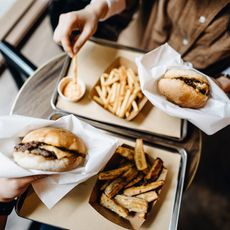 These 8 Foods Are the Worst for Rosacea—Here's What to Eat Instead
These 8 Foods Are the Worst for Rosacea—Here's What to Eat InsteadControl those flare-ups.
By Sarah Yang
-
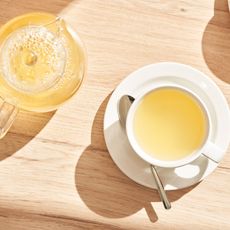 15 Things That Cause Bloating and How to Get Rid of It ASAP
15 Things That Cause Bloating and How to Get Rid of It ASAPTry these.
By Sarah Yang
-
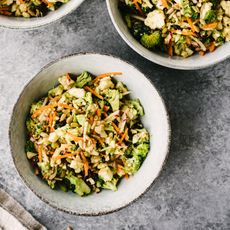 Is the Alkaline Diet Overhyped? What Experts Want You to Know
Is the Alkaline Diet Overhyped? What Experts Want You to KnowHere's how it works.
By Sarah Yang
-
 I'm an Imperfect Dietitian and My Key to Eating Healthy Meals Is Convenience
I'm an Imperfect Dietitian and My Key to Eating Healthy Meals Is ConvenienceTake a peek at my weekly grocery staples.
By Candice Aman
-
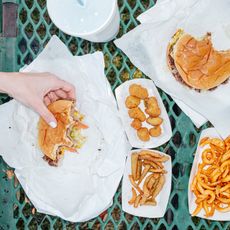 Avoid These 6 Foods—They'll Wreck Your Gut Health
Avoid These 6 Foods—They'll Wreck Your Gut HealthWhat to eat instead.
By Sarah Yang

